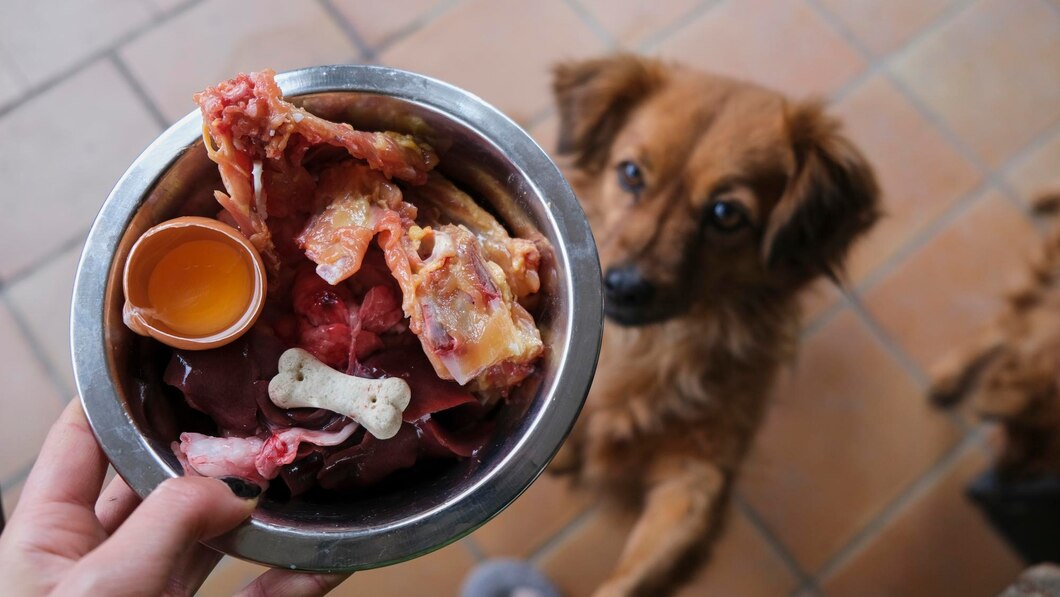Dogs should not eat turkey legs. Cooked bones can splinter and cause internal injuries or blockages.
Turkey legs might seem like a tempting treat for your dog, especially during holiday meals. While turkey meat itself can be a healthy protein source, the bones pose serious risks. Cooked bones become brittle and can easily splinter, causing potential damage to your dog’s digestive tract.
These sharp fragments may lead to choking, internal injuries, or blockages. Raw bones carry their own risks of bacterial contamination. Always opt for boneless, well-cooked turkey meat for your furry friend. It’s safer and avoids unnecessary health issues. Ensure the meat is free from seasoning, garlic, onions, or other harmful additives. Prioritize your dog’s health with safe and appropriate treats.
Nutritional Value
Turkey legs can be a nutritious treat for dogs, providing protein and essential vitamins. Always ensure bones are removed to prevent choking hazards.
Proteins And Vitamins
Turkey legs offer a high amount of protein for dogs. Protein is important for muscle growth and repair. Turkey legs also have vitamin B6, which helps with energy metabolism. Niacin is present too, aiding in enzyme function.
Minerals And Other Nutrients
Turkey legs provide essential minerals like zinc and phosphorus. Zinc supports a healthy immune system. Phosphorus helps maintain healthy bones. They also contain selenium, which is good for thyroid health. Small amounts of fat in turkey legs provide energy.
Potential Risks
Feeding dogs turkey legs poses potential risks such as choking hazards and splintered bones. These can cause internal injuries or blockages. Additionally, seasonings and high-fat content may lead to digestive issues or pancreatitis.
Bones And Choking Hazards
Turkey legs have bones that can be dangerous. Bones can splinter and cause injuries. These injuries can happen in the mouth, throat, and stomach. Splintered bones can lead to choking or blockages. Small pieces of bone can also get stuck. This can make your dog very sick. Always watch your dog when they eat.
Seasonings And Additives
Seasonings on turkey legs can be harmful. Garlic and onions are toxic to dogs. Salt and spices can upset their stomachs. Additives like preservatives are also bad. These can cause allergic reactions. Always check what is on the turkey leg. Plain turkey is safer for dogs.
Safe Feeding Practices
Dogs can enjoy turkey legs in moderation, but ensure bones are removed to prevent choking hazards. Cooked, unseasoned turkey meat provides a healthy treat. Always monitor for any allergic reactions.
Proper Preparation
Always cook turkey legs before giving them to your dog. Raw meat can carry harmful bacteria. Remove all the bones from the turkey leg. Bones can splinter and hurt your dog’s throat or stomach. Avoid adding spices or seasoning. Some spices can be toxic to dogs.
Portion Control
Feed turkey legs in small portions. Too much turkey can upset your dog’s stomach. Balance turkey with other foods in their diet. Dogs need a variety of nutrients. Always monitor your dog after feeding turkey legs. Look for any signs of discomfort or allergies.
Signs Of Allergies
Dogs can have allergic reactions to turkey legs. Watch for itchy skin and redness. Your dog may scratch a lot or lick their paws. Swelling around the face and ears is another sign. Vomiting and diarrhea can also indicate allergies. Sneezing and coughing are less common but possible.
If your dog shows any severe symptoms, call your vet. Difficulty breathing or excessive vomiting are emergencies. Persistent diarrhea needs attention too. Even mild symptoms should be discussed with a vet. They can suggest the best treatment plan for your dog. Always seek professional advice for your pet’s health.
Health Benefits
Dogs can safely eat turkey legs in moderation, providing a good source of protein and essential nutrients. Ensure the turkey is cooked, boneless, and unseasoned to avoid health risks.
Improved Muscle Health
Turkey legs are rich in protein. Protein helps build strong muscles in dogs. Strong muscles are important for active dogs. Proper muscle health keeps dogs energetic. It also supports their overall mobility.
Better Coat And Skin
Turkey meat contains essential fatty acids. These fats improve a dog’s coat and skin. Shiny coats make dogs look healthy. Healthy skin reduces itchiness and dryness. Nutrients in turkey promote better skin health.
Alternatives To Turkey Legs
Dogs can enjoy safer alternatives to turkey legs, such as boneless, cooked turkey meat. Opt for lean cuts to avoid digestive issues.
Other Safe Meats
Chicken is a safe and healthy meat for dogs. It is lean and provides essential proteins. Beef is another good option. It offers high protein and iron. Both these meats should be cooked without any seasoning. Pork can be given but in moderation. It is fatty and should be served in small amounts. Lamb is also a good choice. It is rich in vitamins and minerals.
Vegetable Options
Carrots are great for dogs. They are low in calories and high in fiber. Green beans are another safe vegetable. They provide vitamins and are good for digestion. Sweet potatoes are also beneficial. They are rich in vitamins A and C. Peas can be included in your dog’s diet. They are high in protein and fiber. All vegetables should be cooked and served without seasoning.
Another Post: Why Does your Dogs Lick Your Ears
FAQ
Can Dogs Eat Turkey Legs?
Yes, but only cooked. Avoid bones, skin, and seasoning.
Are Turkey Bones Safe For Dogs?
No, turkey bones can splinter. They pose a choking hazard.
What Parts Of Turkey Can Dogs Eat?
Dogs can safely eat cooked turkey meat without skin or bones.
Conclusion
Feeding turkey legs to dogs can be risky. Bones can splinter and cause harm. Always consult your vet first. Opt for plain, cooked turkey meat instead. This ensures your dog enjoys a safe, nutritious treat. Remember, your dog’s health is a priority.
Choose wisely for their well-being.

